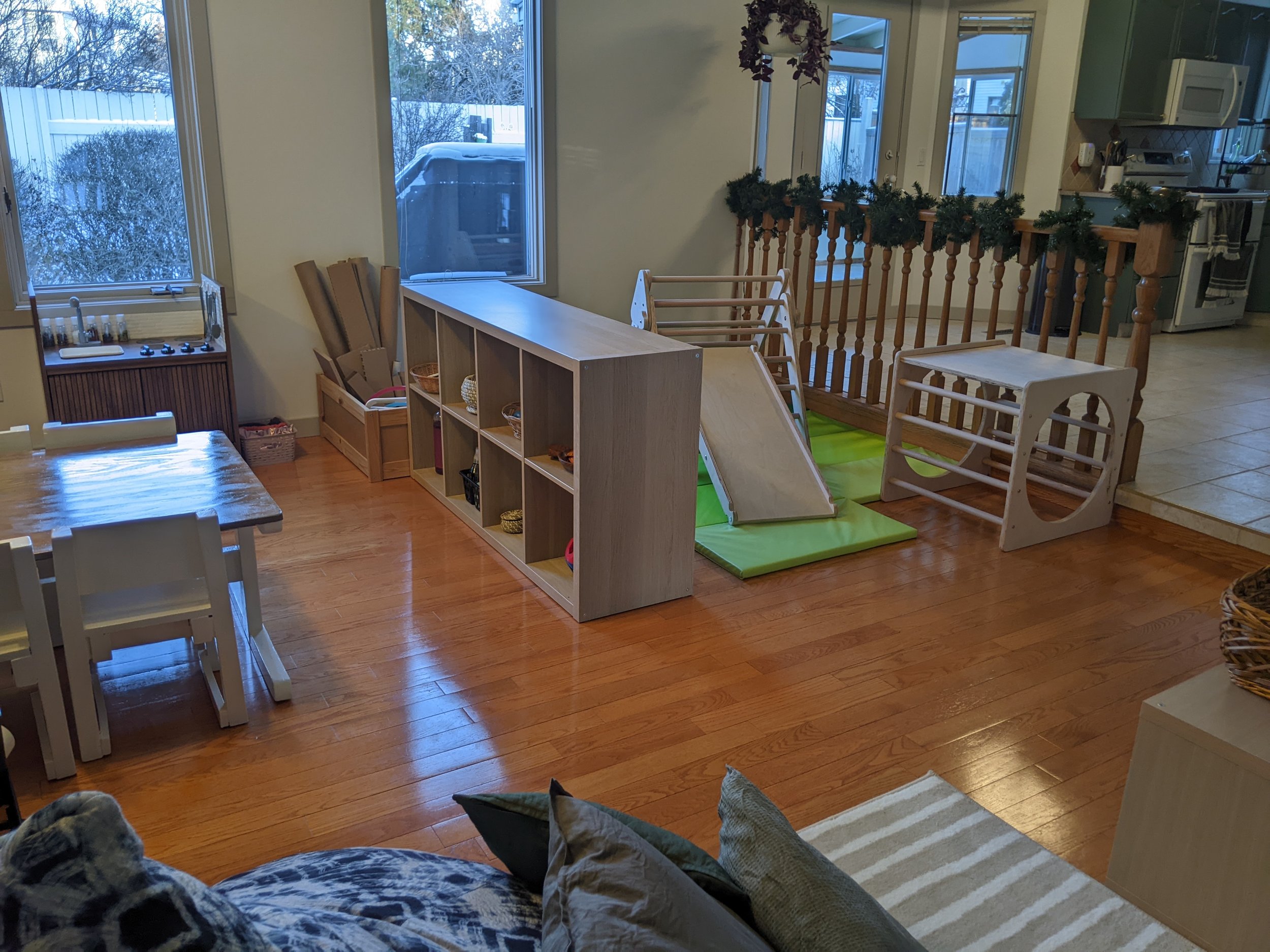
All play is valued at Wild Roses.
Centers of play at Wild Roses Early Learning Center.
-

Outdoor Play.
Outdoor play is so important for young children. Playing outside aids in developing math and science skills, a connection to nature, self-regulation, and relationship-building. In nature, children feel more free to explore and be themselves! Children have the right to outdoor play as they benefit from the joy of playing and improved overall well-being! We play outside every single day (weather dependent) to explore, move, and connect to nature!
-

Sensory Play.
Sensory play comes in many different forms but are all important for sensory development, experimentation (math and science), emotional regulation, critical thinking, and creativity! These experiences help children experiment and perceive the world. We practice mindfulness as we focus on our senses to feel and work to understand what we are experiencing! From sensory bottles to water play to outdoor experiences, there will be sensory play available every day!
-

Dramatic Play.
Dramatic play changes from age to age. Children explore imitation of their parents caring for them, their daily routines, people in their community, and other roles or experiences that interest them. Role-playing helps them to explore these concepts and makes sense of their world. Dramatic play also develops self-control, emotional expression, creativity, and relationship-building with other children! Wild Roses has a dramatic play area with a kitchen and materials that rotate depending on the children’s interests!
-

Active Play.
Young children have a need to be active. Not only are they exploring the world, but they are exploring what their bodies can do. Children need time, space, and materials to explore the limits and development of their motor skills. Wild Roses has indoor climbing equipment and a large space for movement such as crawling, rolling, jumping, dancing, and yoga!
-

Constructive Play.
Constructive play involves planning, building, and playing with structures. Children practice stacking and balancing, making patterns, understanding measurements, and observing cause and effect as they build. They also use the structures they build as symbols for pretend play. We use wooden blocks, tree cuttings, and recycled materials for constructive play!
-

Creative Play.
Creativity is a skill where children develop the ability to try new things, explore possibilities, imagine new ideas, solve problems, be flexible, question, and transform materials! Children express their ideas, concepts that interest them, and what they are learning/wondering about through their play! We have many art materials and loose parts for children to use and express their creativity!
-

Quiet Play.
In our calm/quiet area, children have a space where they can take a break from active play, relax, spend time alone, self-regulate, and change the pace from the busy classroom. Wild Roses’ quiet area includes a cozy bean bag, pillows, stuffed animals, books, and materials for emotional learning!
-

Musical Play.
Enjoying and experiencing music can support holistic development in young children. Music promotes language development, sensory perception, and motor skills as children experiment with moving their bodies and playing instruments!
At Wild Roses, we engage in dance parties, singing songs throughout the day, and playing instruments of all kinds!
-

Literacy Play.
Language is important for all humans. It is how we communicate with each other, make connections, and tell stories. Literacy comes in the forms of reading and writing which are explored in an open-ended, creative way at Wild Roses Early Learning Center. We read books together, discussing the stories and the pictures. We also experiment with art as scribbling and drawing are the precursors to writing.
